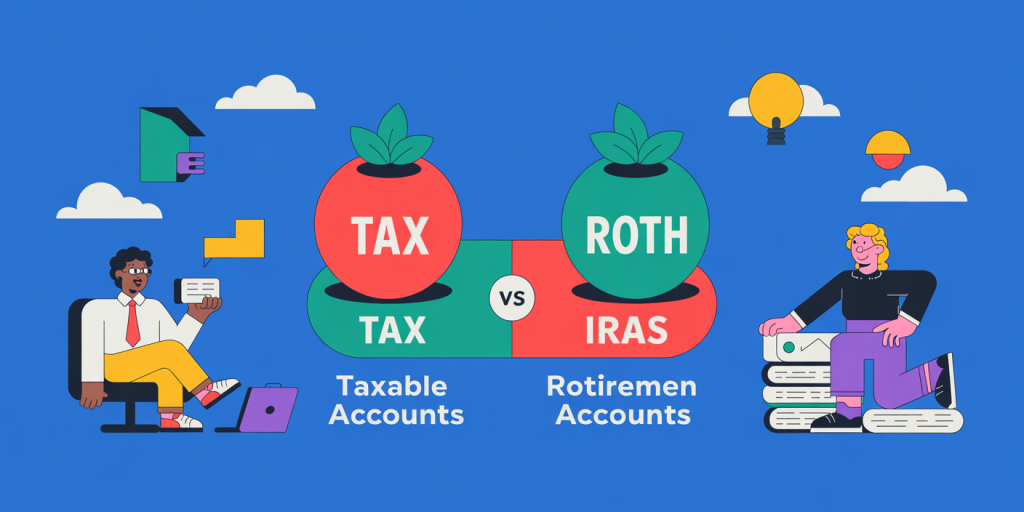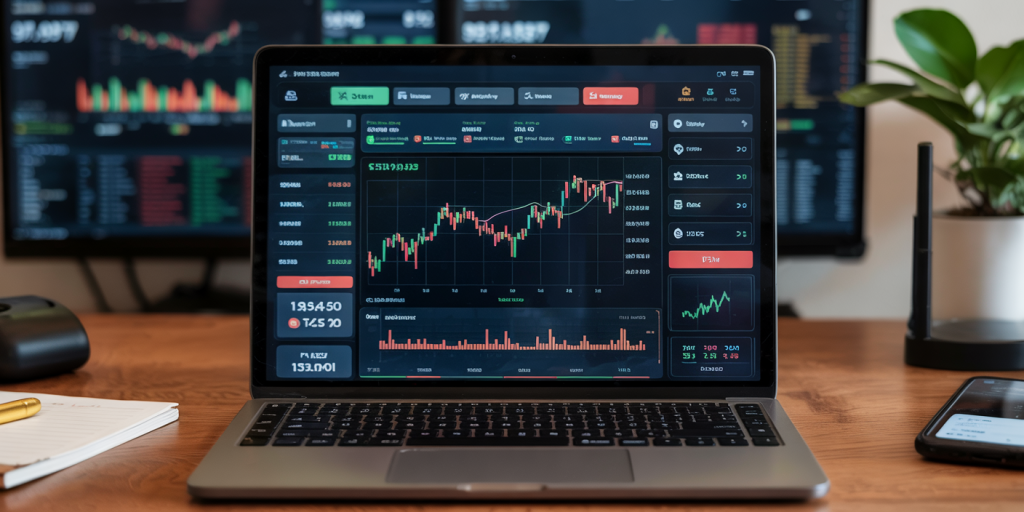How to Choose the Right Brokerage Account for Your Needs
Selecting a brokerage account is one of the most fundamental steps for anyone looking to invest in the stock market, mutual funds, ETFs, or other financial instruments. Yet, many investors—particularly beginners—find themselves overwhelmed by the sheer number of options, account types, fee structures, and available tools. Choosing the right brokerage account tailored to your unique financial goals and investment style can significantly impact your long-term returns, tax efficiency, and user experience.
In 2023, Statista reported over 50 million stock market investors in the United States alone, a figure that has steadily increased due to technological advancements and the rise of commission-free trading platforms. Yet despite the booming market participation, research from FINRA indicates that nearly 70% of new investors feel underprepared when selecting their initial brokerage account. This highlights the importance of understanding critical factors such as fees, account types, trading platforms, and customer service before committing.
Understanding Different Types of Brokerage Accounts
Brokerage accounts come in many forms, but they generally fall into two main categories: taxable accounts and retirement accounts. Taxable accounts, sometimes called standard or regular brokerage accounts, offer the most flexible access to your investments. You can freely deposit and withdraw funds without penalties, making them suitable for short-term goals or general investing. However, any capital gains, dividends, or interest earned in these accounts are subject to taxation in the year they are realized.
Retirement accounts, such as IRAs (Individual Retirement Accounts) or Roth IRAs, are designed primarily to encourage long-term saving by offering tax advantages. Traditional IRAs provide tax-deferred growth where contributions may be tax-deductible, but withdrawals during retirement are taxed as income. Roth IRAs require after-tax contributions but allow tax-free withdrawals once certain conditions are met. Choosing the right retirement account largely depends on your current and expected future tax brackets.
Real-world example: Jane, a 35-year-old professional, opened a Roth IRA because she expects her tax rate in retirement to be higher than today. Conversely, Mike, age 45, favors a traditional IRA to receive immediate tax benefits, assuming his tax bracket will decline post-retirement. Both decisions align with their respective financial forecasts and tax considerations, demonstrating the importance of aligning brokerage account types with individual goals.

Evaluating Fees and Commissions: Impact on Your Investment Returns
One of the biggest factors when selecting a brokerage account is cost. Fees and commissions can significantly erode investment returns over time. In the past, most brokers charged commissions for every trade, which could range from $5 to $50 per transaction. However, as of 2024, many leading brokerage firms like Charles Schwab, Fidelity, and Robinhood have eliminated commissions for U.S. stocks and ETFs to attract more customers.
Despite the zero-commission trend, investors should be wary of hidden costs such as account maintenance fees, inactivity fees, margin interest rates, and expense ratios on mutual funds or ETFs offered by the brokerage. For instance, some platforms charge an annual fee if your account balance remains below a certain threshold. Others might impose costs if you do not meet a minimum trading frequency.
Consider this comparative table of popular brokerage platforms in 2024:
| Brokerage Firm | Stock/ETF Commission | Account Maintenance Fee | Margin Interest Rate (APR) | Inactivity Fee |
|---|---|---|---|---|
| Charles Schwab | $0 | $0 | 9.325% | $0 |
| Fidelity | $0 | $0 | 8.99% | $0 |
| E*TRADE | $0 | $0 | 9.45% | $0 |
| Robinhood | $0 | $0 | 12.49% | $0 |
| TD Ameritrade | $0 | $0 | 10.75% | $0 |
For example, an investor named Sarah prefers Fidelity for her brokerage account due to its zero commission, no account fees, and lower margin interest rates, as she plans to use margin for some short-term investing. Cost-effectiveness should be weighed alongside other brokerage features to optimize investment outcomes.
Assessing Platform Usability and Research Tools
The usability of the brokerage’s trading platform plays a critical role in the overall investing experience. Ease of access, reliability, intuitive navigation, and mobile functionality matter substantially, especially for investors who trade frequently or utilize advanced order types such as stop-loss and limit orders. More sophisticated investors might benefit from platforms offering research tools, customizable charts, and technical analysis features.

For instance, Fidelity and TD Ameritrade are renowned for their robust research offerings, including third-party analyst reports, proprietary stock screeners, and educational webinars. Robinhood, while highly accessible for beginners due to its minimalist design, lacks many advanced tools that active traders depend on.
Consider John, a seasoned investor focusing on day trading; he requires real-time quotes, complex order types, and advanced charting capabilities. TD Ameritrade’s Thinkorswim platform fits these needs perfectly. Conversely, Maria, a novice, favors Robinhood’s simple interface to avoid feeling overwhelmed while investing in index funds and ETFs.
Before committing to a brokerage, consider trialing their platform through demo accounts or free trials. This hands-on approach can prevent frustration and costly mistakes down the line.
Customer Service and Support: Why It Matters
Investing involves managing real money, often with complex queries related to transfers, tax forms, or trading mistakes. Responsive and knowledgeable customer support can make a significant difference, especially in volatile markets. According to a 2023 J.D. Power survey, brokerage firms with top-rated customer service showed a 20% higher client retention rate, underlining how service quality impacts investor satisfaction.

Most big-name brokers like Charles Schwab and Fidelity offer 24/7 phone support, live chat, and even in-person assistance at branch locations. Smaller or online-only platforms might offer chatbots or email-only support, which may not be adequate during urgent issues such as mistakenly placing a wrong trade.
An illustrative scenario includes Tim, a young professional who accidentally transferred funds to an incorrect account number. He contacted Charles Schwab’s customer service, and within hours, the issue was rectified without any financial loss, showcasing the value of prompt support. Conversely, Jane, using a lesser-known brokerage, faced a multi-day delay in resolving a similar issue due to limited customer service hours, resulting in financial repercussions.
Therefore, evaluate brokerage firms based on their support channels, hours of operation, and user reviews before opening an account.
Additional Features: Margin Trading, Fractional Shares, and Account Minimums
The availability of additional features such as margin trading, fractional shares, and account minimums can influence your brokerage choice depending on your investing strategy and capital.
Margin trading allows investors to borrow money from the broker to increase their buying power. While this can amplify returns, it also magnifies risk. Brokers set margin interest rates and minimum requirements differently. Fidelity, for example, offers competitive margin rates starting at 8.99%, while Robinhood’s are higher at 12.49%.
Fractional shares have become increasingly popular, enabling investors to purchase portions of expensive stocks like Amazon or Tesla with as little as $1. This democratizes investing, especially for those with limited capital. Charles Schwab and Fidelity provide fractional shares on thousands of stocks and ETFs, whereas some brokers may not yet offer this feature.
Account minimums are another important consideration. Some brokers require a minimum deposit to open an account, such as $500 or $1,000, while others, including Robinhood and M1 Finance, allow accounts without minimum deposits, making them accessible to beginners.
An example case: Emily, who is new to investing with $200 monthly to invest, benefits greatly from brokerage platforms offering fractional shares and zero minimum deposit requirements. She uses Charles Schwab to buy fractional shares, gradually building her portfolio without needing to accumulate large sums upfront.
Future Perspectives: Innovations and Trends in Brokerage Services
The brokerage industry continues evolving rapidly, with technology and regulatory changes shaping the future landscape. Artificial intelligence (AI) and machine learning integrate into portfolio management and financial advice, offering personalized investment strategies at lower costs than traditional advisory services. Wealthfront and Betterment are pioneers in this robo-advisor realm, combining brokerage functionalities with automated asset management.
Additionally, cryptocurrencies and blockchain technology are gradually being incorporated into brokerage platforms. Firms like Coinbase have set the stage for digital asset trading, while major brokers like Fidelity are beginning to offer crypto custody solutions. This integration offers investors more diversification options but requires understanding new asset risks.
The rise of sustainable investing also influences brokerage offerings, with platforms increasingly providing ESG (Environmental, Social, and Governance) screening tools to cater to socially responsible investors. For example, Schwab and Fidelity offer curated ESG funds and ratings to guide investor choices consistent with their values.
Data privacy and cybersecurity remain critical areas as brokerage accounts are frequent targets of cyber attacks. Firms increasingly invest in multi-factor authentication, encryption, and education to safeguard client assets and information.
In the next decade, investors will witness brokerage firms morph into multi-asset platforms combining traditional securities, digital assets, automated advice, and enhanced customer experiences. This evolution promises more customization but demands greater investor literacy and due diligence.
Selecting the right brokerage account is an essential foundation for a successful investment journey. By carefully considering account types, fees, platform usability, customer support, and additional features aligned with your financial goals and risk tolerance, you can optimize your investment decisions both in the short and long term. Keeping an eye on emerging trends will further ensure you stay ahead in an evolving marketplace. Whether you are a beginner or an experienced trader, making an informed choice today paves the way for financial empowerment tomorrow.
